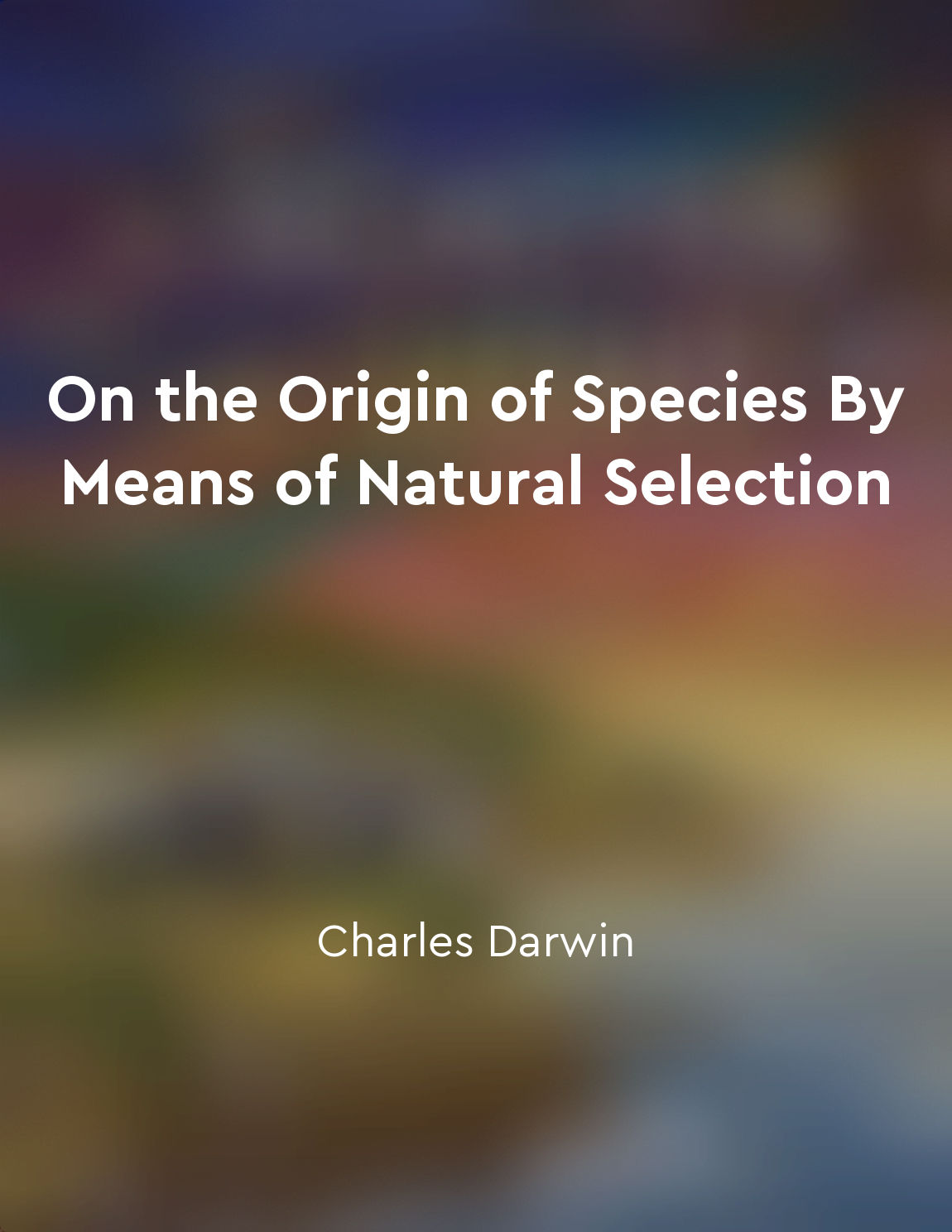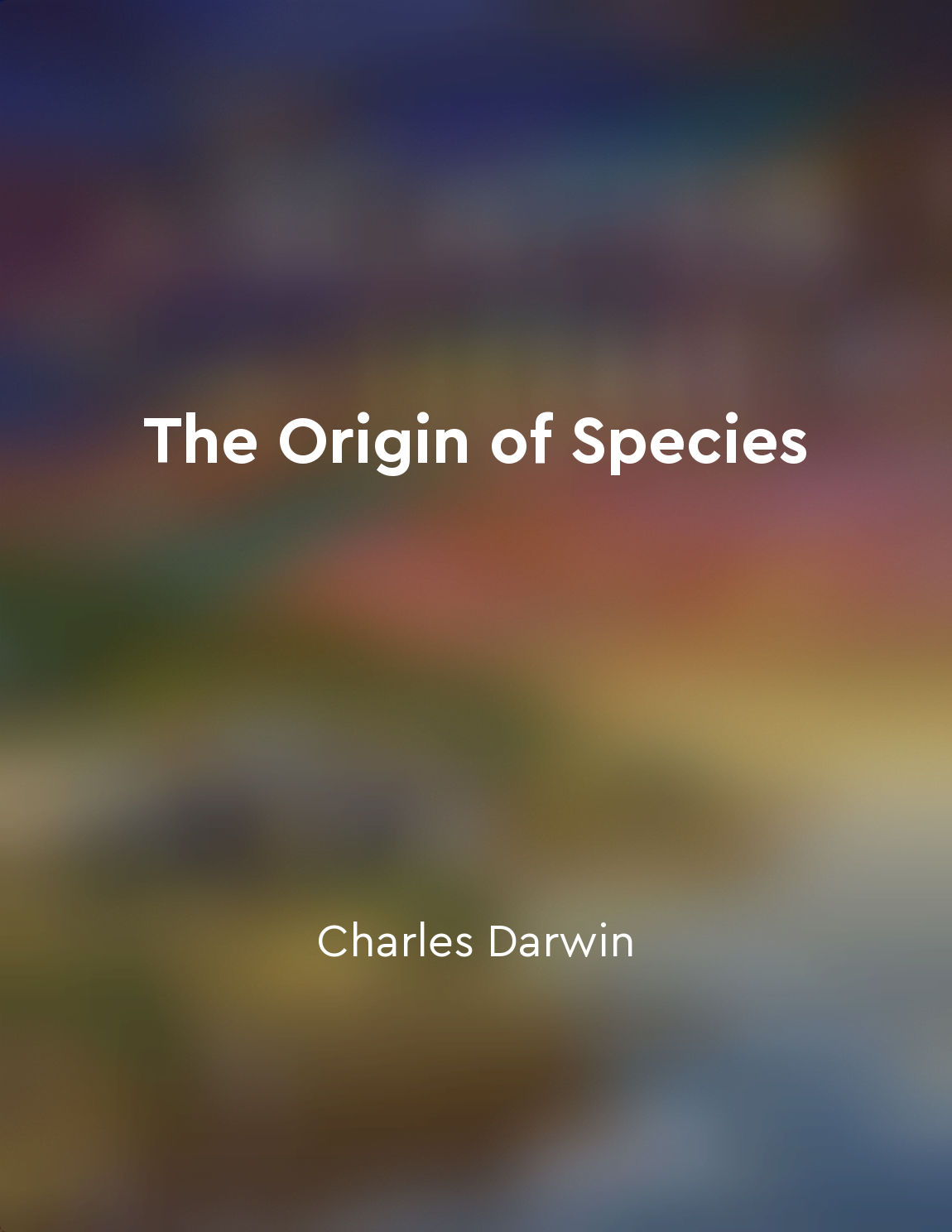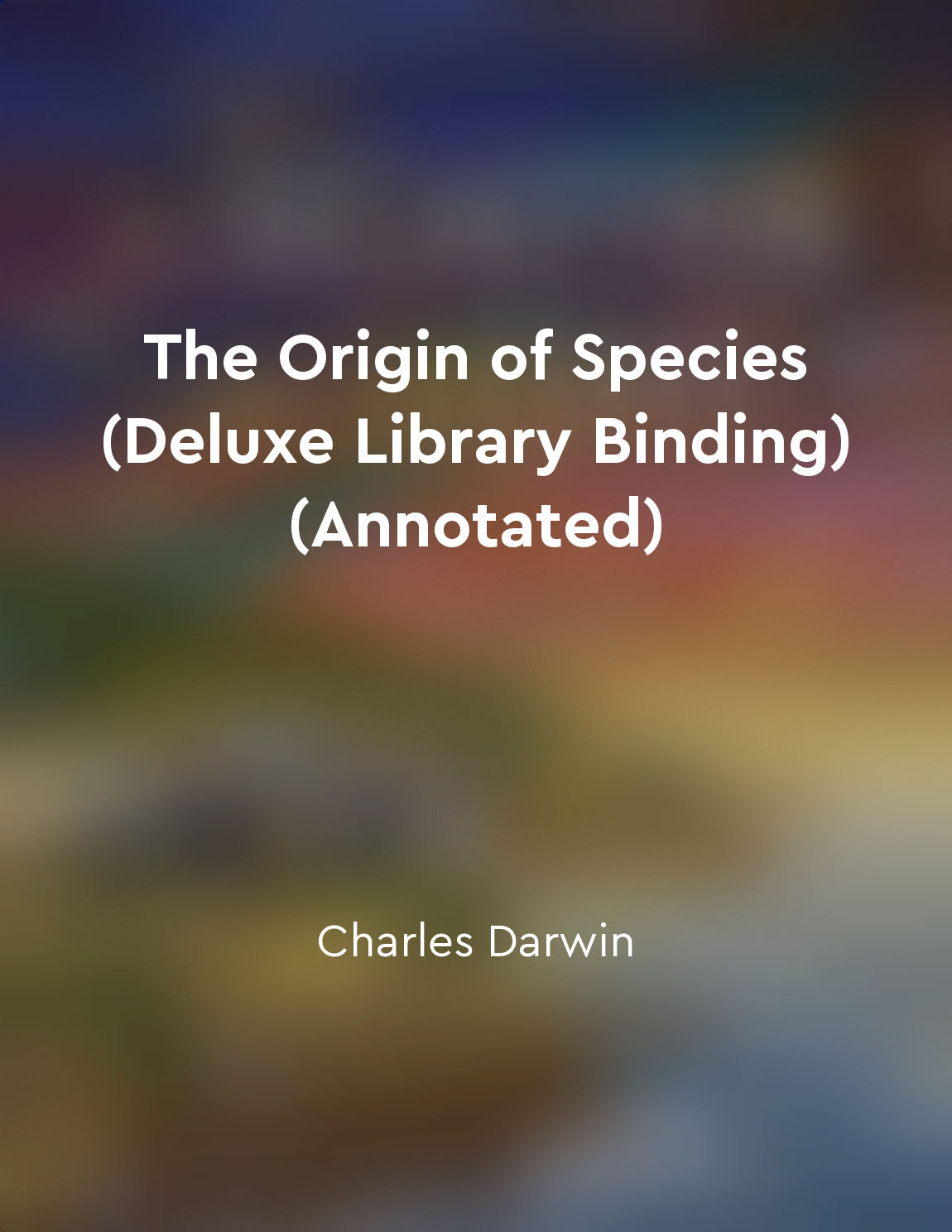Natural selection is a mechanism for adaptation from "summary" of The Origin of Species (Deluxe Library Binding) (Annotated) by Charles Darwin
In the natural world, organisms must constantly adapt to survive in their ever-changing environments. Natural selection is the key mechanism driving this process of adaptation. It is through natural selection that certain traits become more common in a population over time, as individuals with these advantageous traits are more likely to survive and reproduce. As Charles Darwin observed, individuals within a population vary in their traits, such as beak shape in finches or fur color in moths. These variations can be inherited, passed down from one generation to the next. When individuals with certain traits are better suited to their environment, they have a higher chance of surviving and passing on their genes to their offspring. Over many generations, this process can lead to the gradual accumulation of advantageous traits within a population, resulting in adaptations that help organisms thrive in their specific habitats. This constant interplay between the environment and the traits of individuals is what drives the process of natural selection. Through natural selection, organisms become better suited to their environments, increasing their chances of survival and reproduction. This leads to the evolution of new species over time, as populations diverge and adapt to different ecological niches. By understanding the role of natural selection in shaping the diversity of life on Earth, we can gain insights into how organisms have adapted to their environments and continue to evolve in response to changing conditions. Natural selection is a powerful mechanism for adaptation, driving the process of evolution and shaping the incredible diversity of life that we see today.Similar Posts
A holistic approach to agriculture is necessary to address the interconnected challenges of the food system
To truly tackle the complex issues facing our food system, we must take a comprehensive and interconnected approach to agricult...
Universe's grand design remains a mystery
The quest to understand the universe has been a driving force for humans throughout history. From ancient civilizations to mode...
The future of human evolution and its challenges
As we contemplate the future of human evolution, we are faced with numerous challenges that will shape the course of our specie...

Struggle for existence in nature
The term "struggle for existence" in nature refers to the fierce competition that takes place among species for limited resourc...
Copernicus proposed a heliocentric model
In the sixteenth century, Nicolaus Copernicus put forward the revolutionary idea that the Earth is not the center of the univer...

Sexual selection for desirable traits
One of the most intriguing aspects of evolution is the idea that certain traits can be selected for based on their desirability...

Vestigial organs as remnants of evolution
In the process of natural selection, organisms gradually evolve over time to better suit their environment. As a result, certai...

Evolution is supported by overwhelming evidence
The concept of evolution being supported by overwhelming evidence is a fundamental truth that cannot be denied. The evidence fo...

Common descent links all living organisms
Darwin proposes that all living organisms on Earth are connected through a shared ancestry, tracing back to a common origin. Th...
Embracing the truth of evolution enriches our understanding of the natural world
The truth of evolution is a profound concept that has the power to transform our understanding of the natural world. By accepti...

